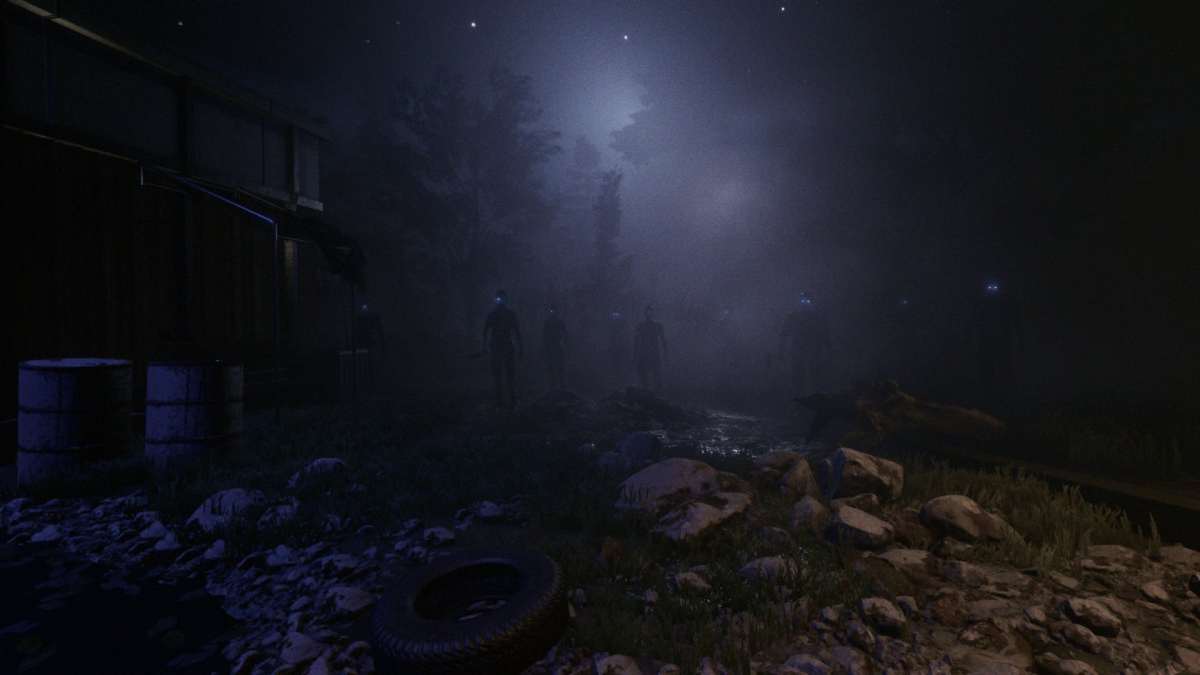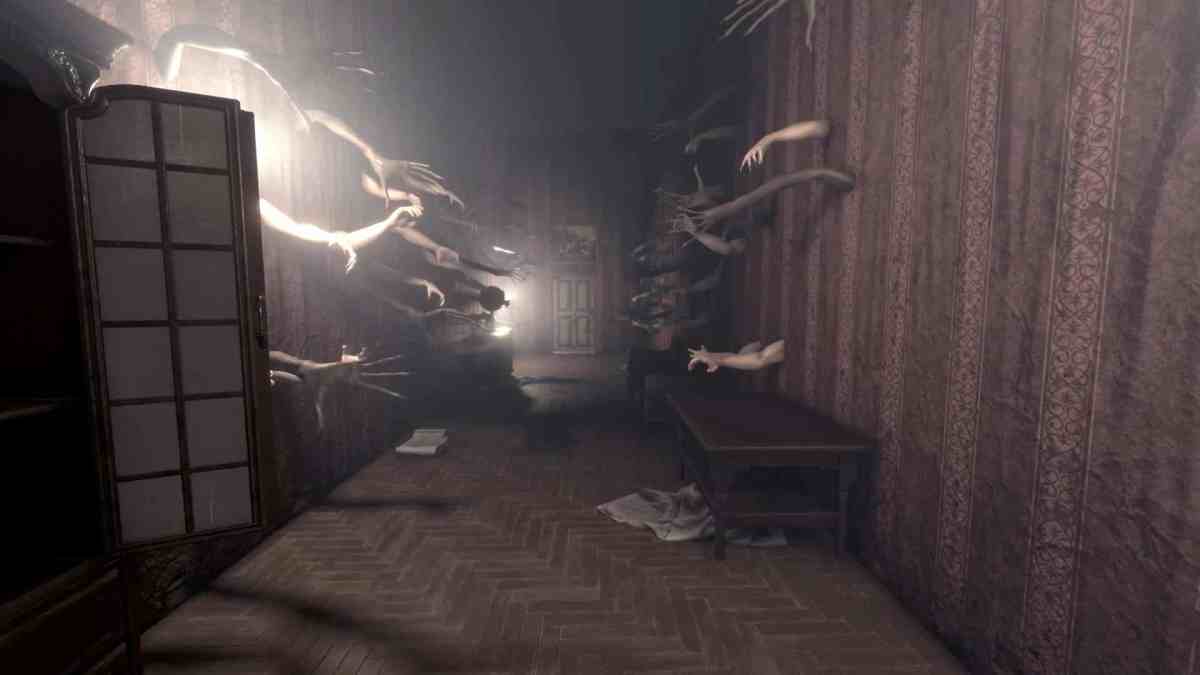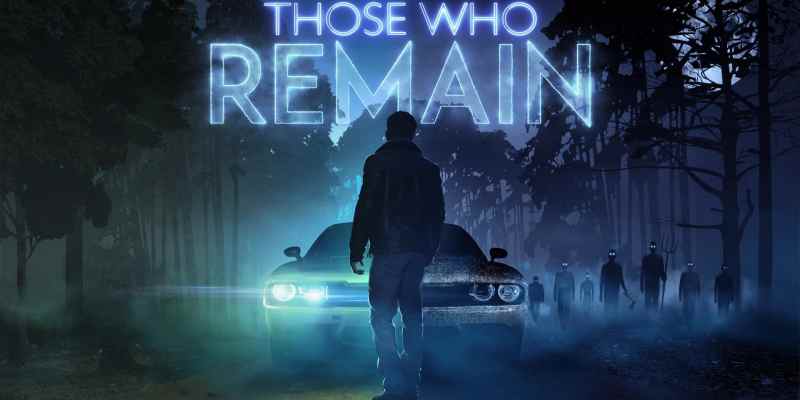Set in the seemingly sleepy Washington town of Dormont and due for release in June, psychological horror game Those Who Remain is the latest by Camel 101, its first game since 2016’s Syndrome. It’s a game with a simple premise: darkness kills. This is not just any darkness though, but one brought forth by a demon terrorizing the inhabitants of Dormont, ensuring there is no escape. Players take on the role of Edward Turner, a man searching for a woman amidst this unsettling landscape.
Founding studio member and lead writer Ricardo Cesteiro explained how the game has had a “long journey” to taking its current form. “When we started this game, we had a very simple concept,” he said. “We wanted to make a puzzle game with mechanics set around the premise of the light and the dark, where the player couldn’t go into the dark. Then we built a demo and we saw that it didn’t quite work because it was very complicated to explain the concept visually to the player. To make it easier, we decided to add creatures in the dark so that the player could know for sure that they cannot go into the dark. A few more features later and eventually the very simple thing grew into a much more complex game.”
The team knew what kind of game they wanted to make — a scary one — but the shape that it took changed over the course of the process. At first they considered a “curse in the dark,” but from developing the game and story in tandem, the idea to place creatures in the dark emerged. “I think that this game appeals to that very primal fear of the dark that we all have,” said Cesteiro, “especially since every time the player looks into the dark, they see some creepy guys with knives and axes staring back at them. It’s a creepiness factor that works really well.”
It isn’t all about the dark though — Those Who Remain’s main themes are diverse, touching upon bullying, infidelity, and suicide, though they exist separately from the gameplay mechanics. “We didn’t want to create the scares based on specific moments, or on jumpscares,” explained Cesteiro. “We tried to create a scary atmosphere that could be always oppressive and tense, so that the players would never feel entirely safe. So instead of a moment, we have the whole game, always scary and oppressive. I think we actually managed to do it from the reactions I see from players. Everyone is very tense playing the game, which is exactly what we were aiming for.”
Creating the atmosphere was a key aspect of the game, and a lot of work went into building an immersive game world, both visually and in terms of sound design. Halfway into the project, they enlisted two audio specialists who took the sound to another level of quality. Now, “all the sounds, the crows, the footsteps” pop as they should.
The monsters are likewise a key part of manufacturing that atmosphere and bringing it to a rousing crescendo. “They are always a threat, and whenever we have a threat, it makes the player see things in a different way,” said Cesteiro, and it in turn brings deeper immersion. The most pivotal of these monsters is the demon influencing the horrors in Dormont.
“When we were creating this demon character, we did a lot of research into demons and demon mythology, and it was very cool learning so much about it, and where demons come from,” said Cesteiro. “This demon is not the classic demon with horns that burns people; he’s a trickster who likes to play around with them, though he’s not necessarily entirely evil either.”

Dormont is ostensibly a quiet town like any other, and it drew influence from Twin Peaks, as well as “that kind of American-style horror of the old town with a diner and classic cars.” Dormont will blend the familiar elements with the supernatural elements to pull players into a twisted alternate reality that exists parallel with the natural world. What occurs in one world will affect the other world, enabling unique gameplay situations and puzzles.
Edward Turner, thrust into this world, will not be some special ops agent or someone especially invested in the supernatural; he’s just a regular guy, so as to better ground the story in reality. “We didn’t want to have a classical hero,” Cesteiro said. “We didn’t want a guy with amazing morals. This is just a person — he made a few mistakes, he drinks a lot. When the game starts, he’s going to meet his lover in a motel, so he’s obviously a cheater… he’s not the perfect man.”
Choice also forms a pillar of the gameplay in Those Who Remain. Edward will have to make decisions that alter the course of the story drastically and can result in good, bad, or horrible outcomes by the end. Cesteiro explained how important this was to the team.

“I think it’s very important so that the player doesn’t feel that they’re just going through a story,” he said. “They’re kind of writing the story. The whole game is about choices and consequences. Obviously, we want the player to feel the weight of choice too, so they are going to have to make a few choices in the game that will affect the ending. I think it makes the game more interesting; it’s very cool to watch the players go through the choices and see who is making the best choice and who is making a bad choice, to look from afar and see how the game is played.”
This is part of what Cesteiro hopes players will get out of Those Who Remain: a chance to contemplate the choices they made and what consequences they had. “I would like the players to reflect a bit about the things that we do and the consequences of our actions,” he said. “That’s the main premise of the game, though I hope they enjoy the experience above everything.”
Those Who Remain is scheduled for release on PC, PlayStation 4, and Xbox One on May 28th, with a version for Nintendo Switch to follow in summer.
